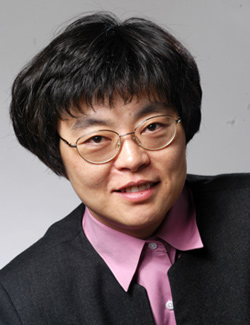The methods of evidence-based science still offer the best single toolkit for achieving a more sustainable, equitable, and bias-free, inclusive world.
The 2021 CLEO conference will take place, in an all-virtual format, from 9 to 14 May. This yearly meeting, co-sponsored by OSA, the American Physical Society and the IEEE Photonics Society, has long been my favorite scientific conference. It was at CLEO that I gave my first oral presentation many years ago—a postdeadline paper on a high-power semiconductor diode array laser with an external cavity to control the far-field beam. After that experience, I made it a point to submit something to CLEO every year. This year’s meeting is sure to include impressive, cutting-edge science, and I urge everyone to take advantage of the meeting’s flexible online format to see what CLEO 2021 has to offer.
May is also the month of the UNESCO International Day of Light (IDL), a celebration of light’s role in science and technology, culture and education, and sustainable development. IDL takes place each year on 16 May, the anniversary of the first demonstration of the laser. For the 2021 celebration, OSA, the IEEE Photonics Society and SPIE have teamed up on a very special project: a campaign to encourage both members of the scientific community and the broader public to sign an action-oriented online pledge to trust evidence-based science, and to recognize “the key role that scientific research and discovery plays in improving the quality of life for all” (https://trust-science.org).
I have signed the Trust Science pledge myself, and I encourage you to do so as well. But I believe we should also use this pledge as an opportunity to reflect on just what we mean by the word “science,” and why it’s so important that we advocate for it.
Of course, there’s the definition that we all learned in primary and secondary school—science as a method for proposing hypotheses through observations; testing hypotheses through careful experiments; modifying hypotheses and conducting new experiments in light of evidence and hard data; and eventually developing models and theories to explain the observed results.
In a broader sense, science is the best method humans have devised so far to remove our biases and subjectivity, and get to an objective view of the world. This focus on objectivity—both as a goal shared by scientists, and as a natural outcome of the scientific method—can be a uniquely powerful framework with implications far beyond the lab bench. In particular, I believe that the objectivity of scientific methods leads naturally to one of our core values, inclusivity—which is all about allowing outcomes and observations to shine above long-standing biases.
Scientists, of course, are human beings, and they and their work have sometimes fallen short of these ideals. But I firmly believe that the methods of evidence-based science still offer the best single toolkit for achieving a more sustainable, equitable, and bias-free, inclusive world.
—Constance Chang-Hasnain,
OSA President

